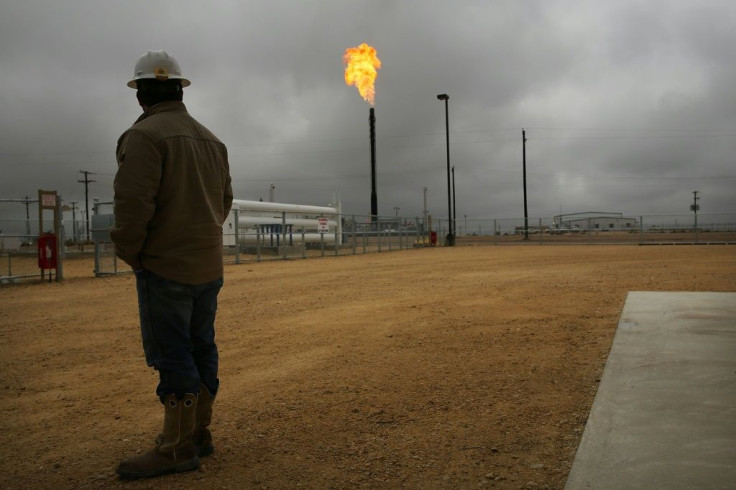Oil Prices Crash Through $30 A Barrel As Coronavirus Fears Mount

KEY POINTS
- Demand is expected to fall more than 2.65 million barrels a day, equal to the loss after the second oil crisis in 1980
- Gulf bourses took a beating Monday, valling as much as 7.8% to levels not seen in years
- The worldwide death toll from coronavirus topped 6,500
Crude oil futures plunged below $30 a barrel Monday as coronavirus fears intensified amid government missteps and a dive in U.S. equities that triggered an automatic trading hold at the open.
The U.S. Federal Reserve’s decision Sunday to slash interest rates by a full point to zero to 0.25% did little to ease concerns, instead apparently intensifying the panic.
Crude oil futures, which gave up 25% of their value last week, were trading as low as $28 while Brent crude hit $29.
The price collapse hit Gulf markets hard. Bourses in the United Arab Emirates and Dubai fell 7.8% and 6.2%, respectively, hitting multiyear lows. Boursa Kuwait’s Premier Index slid 5% and the All-Shares Index fell 3.9%. Saudi Arabia’s Tadawul market fell 3.3% despite a $13.3 billion stimulus package.
President Trump Friday ordered U.S. strategic reserves to be topped off, taking advantage of the lower prices, created in part by the spat between Saudi Arabia and Russia over production levels. The disagreement began when Moscow refused to extend OPEC-mandated production cuts to support prices and lower stockpiles, instead opting to increase production to pressure the U.S. shale oil industry, which needs $40 a barrel to break even. Saudi Arabia responded by slashing prices and announcing a production increase.
Demand for gas slipped to its lowest level since 2016 as more countries shuttered factories and entertainment and food venues, and ordered their populations to stay home. Demand for jet fuel plummeted as airlines cut their schedules. Consumption in 2019 averaged more than 100 million barrels a day, but observers are estimating that could fall more than 2.65 million barrels a day, equal to the loss when recession took hold after the second oil crisis in 1980.
Hussein Sayed, chief market strategist at FXTM, told CNBC investors are panicking over the pandemic and action by central banks to cushion economies are being ignored.
“The price response is understandable given that lower interest rates and new bond purchasing programs will do nothing to combat the current weakness of oil demand,” Commerzbank analyst Carsten Fritsch told Reuters.
China’s industrial output fell 13.5% in January and February, the peak of the outbreak, which originated in the industrial city of Wuhan, the weakest reading since 1990, Reuters reported.
The number of confirmed cases of coronavirus topped 169,000 Monday with more than 6,500 deaths worldwide.
© Copyright IBTimes 2024. All rights reserved.






















